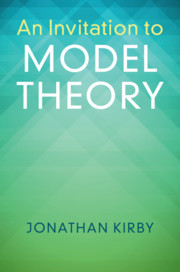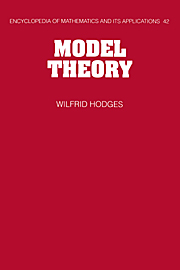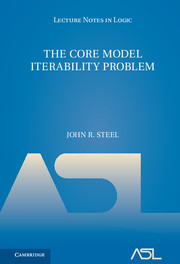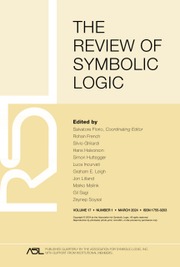An Invitation to Model Theory
Model theory begins with an audacious idea: to consider statements about mathematical structures as mathematical objects of study in their own right. While inherently important as a tool of mathematical logic, it also enjoys connections to and applications in diverse branches of mathematics, including algebra, number theory and analysis. Despite this, traditional introductions to model theory assume a graduate-level background of the reader. In this innovative textbook, Jonathan Kirby brings model theory to an undergraduate audience. The highlights of basic model theory are illustrated through examples from specific structures familiar from undergraduate mathematics, paying particular attention to definable sets throughout. With numerous exercises of varying difficulty, this is an accessible introduction to model theory and its place in mathematics.
- Suitable for use as an undergraduate- or Masters-level course in model theory, unlike traditional graduate-level texts
- Contains many exercises of varying difficulty, from bookwork to more substantial projects
- Presents model theory in the context of undergraduate mathematics via definable sets in familiar structures
Product details
April 2019Adobe eBook Reader
9781316730461
0 pages
0kg
5 b/w illus.
This ISBN is for an eBook version which is distributed on our behalf by a third party.
Table of Contents
- Preface
- Part I. Languages and Structures:
- 1. Structures
- 2. Terms
- 3. Formulas
- 4. Definable sets
- 5. Substructures and quantifiers
- Part II. Theories and Compactness:
- 6. Theories and axioms
- 7. The complex and real fields
- 8. Compactness and new constants
- 9. Axiomatisable classes
- 10. Cardinality considerations
- 11. Constructing models from syntax
- Part III. Changing Models:
- 12. Elementary substructures
- 13. Elementary extensions
- 14. Vector spaces and categoricity
- 15. Linear orders
- 16. The successor structure
- Part IV. Characterising Definable Sets:
- 17. Quantifier elimination for DLO
- 18. Substructure completeness
- 19. Power sets and Boolean algebras
- 20. The algebras of definable sets
- 21. Real vector spaces and parameters
- 22. Semi-algebraic sets
- Part V. Types:
- 23. Realising types
- 24. Omitting types
- 25. Countable categoricity
- 26. Large and small countable models
- 27. Saturated models
- Part VI. Algebraically Closed Fields:
- 28. Fields and their extensions
- 29. Algebraic closures of fields
- 30. Categoricity and completeness
- 31. Definable sets and varieties
- 32. Hilbert's Nullstellensatz
- Bibliography
- Index.





